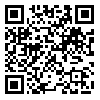Volume 32, Issue 2 (Spring 2024)
Avicenna J Nurs Midwifery Care 2024, 32(2): 140-149 |
Back to browse issues page
Ethics code: ( IR.UMSHA.REC.1400.537
Clinical trials code: IRCT20120215009014N409
Download citation:
BibTeX | RIS | EndNote | Medlars | ProCite | Reference Manager | RefWorks
Send citation to:



BibTeX | RIS | EndNote | Medlars | ProCite | Reference Manager | RefWorks
Send citation to:
Garousian M, Radnia N, Daneshvar F, Talebi-Ghane E, Masnadjam R, Alimohammadi N. Effects of Education and Nurse-led Telephone Follow-ups (Telenursing) in COVID-19 Pandemic on Self-efficacy and Quality of life in Diabetic Patients Referred to Fatemieh Hospital, Hamadan. Avicenna J Nurs Midwifery Care 2024; 32 (2) :140-149
URL: http://nmj.umsha.ac.ir/article-1-2633-en.html
URL: http://nmj.umsha.ac.ir/article-1-2633-en.html
Maryam Garousian1 

 , Nahid Radnia2
, Nahid Radnia2 
 , Fariba Daneshvar1
, Fariba Daneshvar1 
 , Elaheh Talebi-Ghane3
, Elaheh Talebi-Ghane3 
 , Raheleh Masnadjam1
, Raheleh Masnadjam1 
 , Neda Alimohammadi *4
, Neda Alimohammadi *4 




 , Nahid Radnia2
, Nahid Radnia2 
 , Fariba Daneshvar1
, Fariba Daneshvar1 
 , Elaheh Talebi-Ghane3
, Elaheh Talebi-Ghane3 
 , Raheleh Masnadjam1
, Raheleh Masnadjam1 
 , Neda Alimohammadi *4
, Neda Alimohammadi *4 


1- Clinical Research Development Unit of Fatemieh Hospital, Hamadan University of Medical Sciences, Hamadan, Iran
2- Clinical Research Development Unit of Fatemieh Hospital, Department of Gynecology, Hamadan University of Medical Sciences Hamadan, Iran
3- Modeling of Noncommunicable Diseases Research Center, Hamadan University of Medical Sciences Hamadan, Iran
4- Clinical Research Development Unit of Fatemieh Hospital, Hamadan University of Medical Sciences, Hamadan, Iran ,nalimohamadi68@yahoo.com
2- Clinical Research Development Unit of Fatemieh Hospital, Department of Gynecology, Hamadan University of Medical Sciences Hamadan, Iran
3- Modeling of Noncommunicable Diseases Research Center, Hamadan University of Medical Sciences Hamadan, Iran
4- Clinical Research Development Unit of Fatemieh Hospital, Hamadan University of Medical Sciences, Hamadan, Iran ,
Abstract: (3645 Views)
Background and Objective: Education is one of the most basic methods of prevention, treatment, and control of chronic diseases, including diabetes. Telephone follow-up plays an effective role not only in reducing costs but also in providing nursing care and patients’ self-efficacy. This study was conducted to investigate the effect of telenursing training and follow-up on the self-efficacy and quality of life of diabetic pregnant patients referred to the Fatemieh Hamadan Education-Treatment Center during the COVID-19 pandemic in 2022.
Materials and Methods: In this clinical trial study, 83 mothers with diabetes were randomly divided into two control and intervention groups. The research tool was a 3-part questionnaire including a demographic/disease information form, Diabetes Management Self-Efficacy Scale, and quality of life of diabetic patients. Initially, in the first meeting, both groups completed the questionnaire. In the intervention group, an in-person training session was held first. Telephone follow-up with training was done immediately after discharge, twice a week in the first month and once a week in the second month in the intervention group. Then, at the end of the intervention, the questionnaire was completed again by both test and control groups. SPSS version 23 software was used for data analysis.
Results: The average self-efficacy and quality of life in both groups did not show a statistically significant difference before the intervention. After providing training to the intervention group, the average self-efficacy and quality of life in one month and two months later improved significantly compared to the control group (P<0.001).
Conclusion: It seems that telephone follow-up, owing to its accessibility, can be used as a method of follow-up on training pregnant mothers with diabetes.
Materials and Methods: In this clinical trial study, 83 mothers with diabetes were randomly divided into two control and intervention groups. The research tool was a 3-part questionnaire including a demographic/disease information form, Diabetes Management Self-Efficacy Scale, and quality of life of diabetic patients. Initially, in the first meeting, both groups completed the questionnaire. In the intervention group, an in-person training session was held first. Telephone follow-up with training was done immediately after discharge, twice a week in the first month and once a week in the second month in the intervention group. Then, at the end of the intervention, the questionnaire was completed again by both test and control groups. SPSS version 23 software was used for data analysis.
Results: The average self-efficacy and quality of life in both groups did not show a statistically significant difference before the intervention. After providing training to the intervention group, the average self-efficacy and quality of life in one month and two months later improved significantly compared to the control group (P<0.001).
Conclusion: It seems that telephone follow-up, owing to its accessibility, can be used as a method of follow-up on training pregnant mothers with diabetes.
Type of Study: Original Research |
Subject:
Nursing
Received: 2023/03/14 | Accepted: 2023/07/17 | Published: 2024/06/15
Received: 2023/03/14 | Accepted: 2023/07/17 | Published: 2024/06/15
Send email to the article author
| Rights and permissions | |
 |
This work is licensed under a Creative Commons Attribution-NonCommercial 4.0 International License. |




 gmail.com
gmail.com